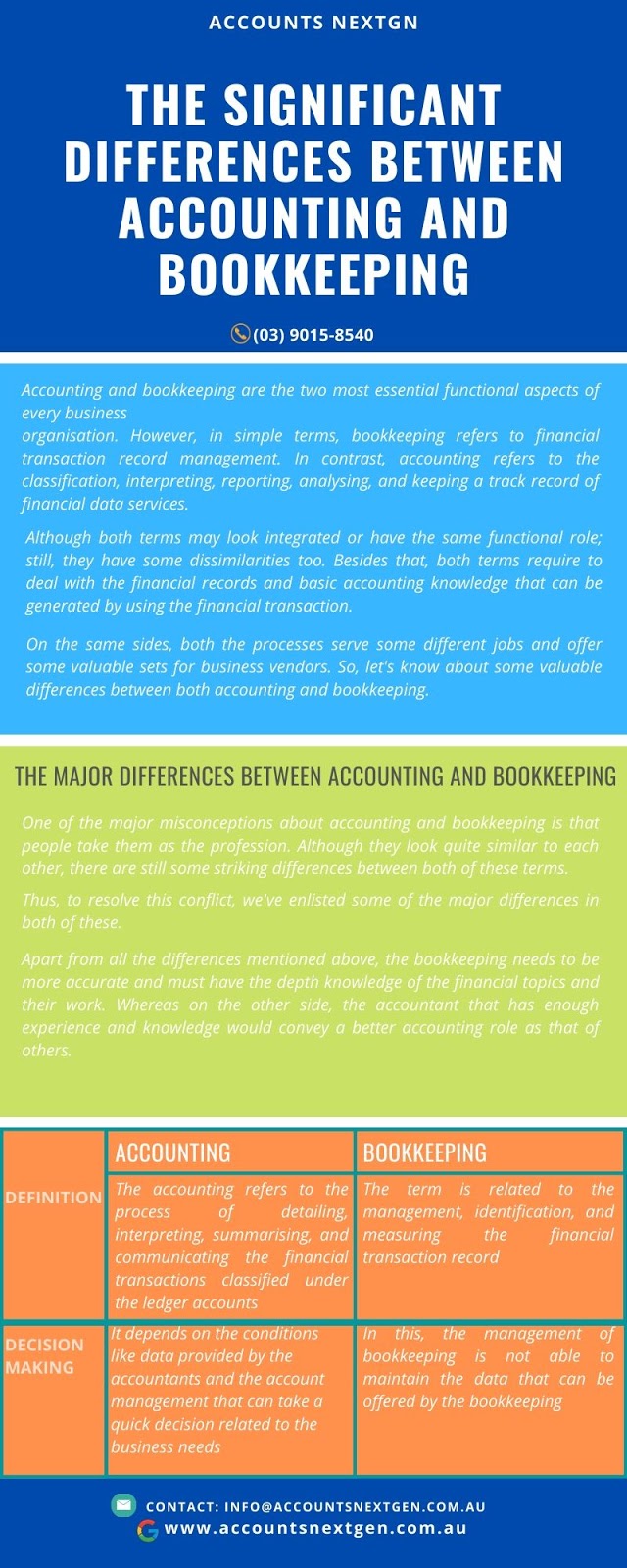Accounting and bookkeeping are the two most essential functional aspects of every business organisation. However, in simple terms, bookkeeping refers to financial transaction record management. In contrast, accounting refers to the classification, interpreting, reporting, analysing, and keeping a track record of financial data services.
Although both terms may look integrated or have the same functional role; still, they have some dissimilarities too. Besides that, both terms require to deal with the financial records and basic accounting knowledge that can be generated by using the financial transaction.
On the same sides, both the processes serve some different jobs and offer some valuable sets for business vendors. So, let’s know about some valuable differences between both accounting and bookkeeping.
The Major Differences between Accounting and Bookkeeping
One of the major misconceptions about accounting and bookkeeping is that people take them as the profession. Although they look quite similar to each other, there are still some striking differences between both of these terms.
Thus, to resolve this conflict, we’ve enlisted some of the major differences in both of these.

Comments
Post a Comment